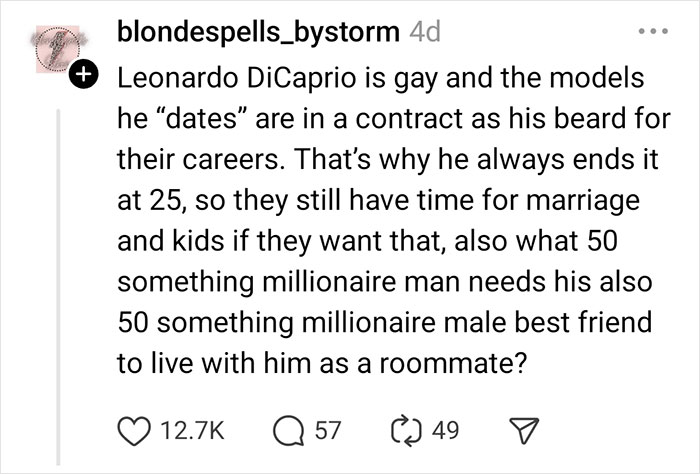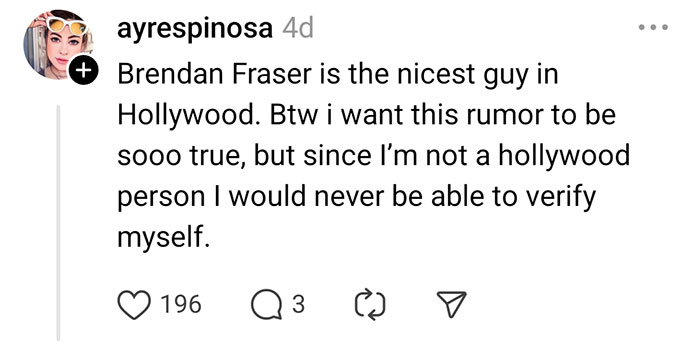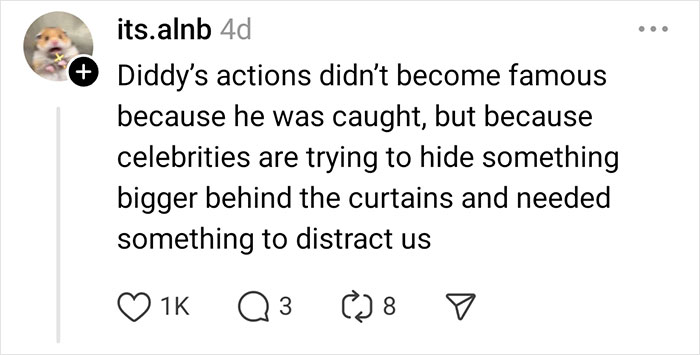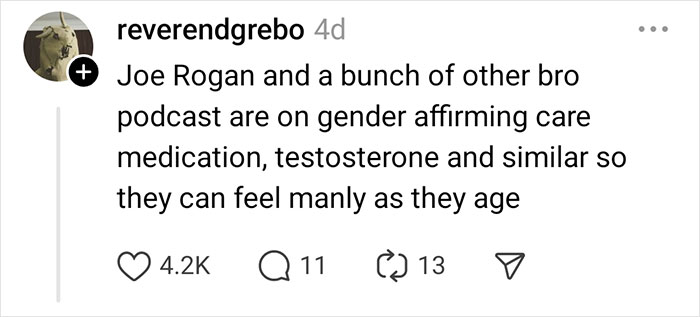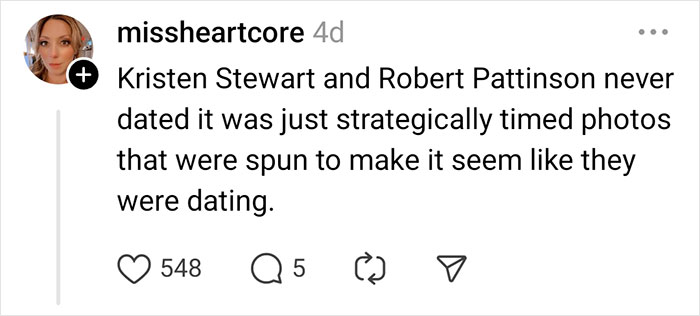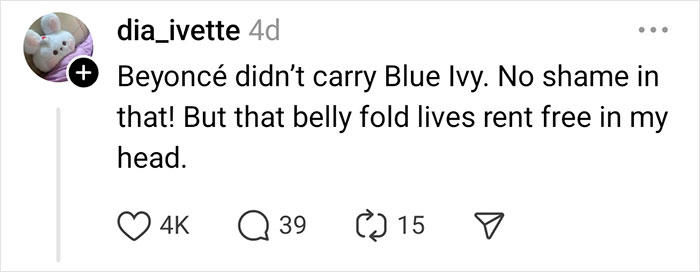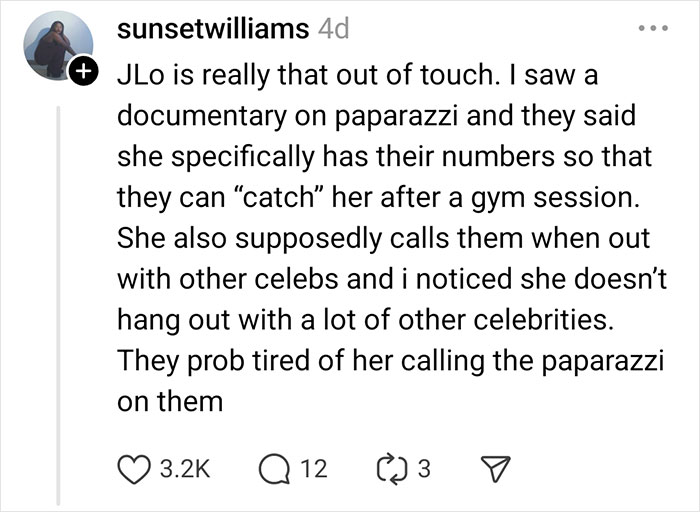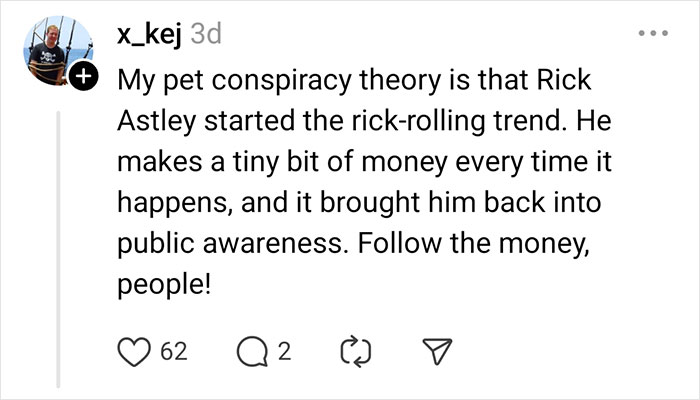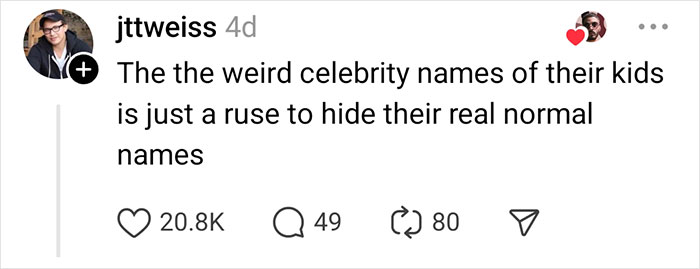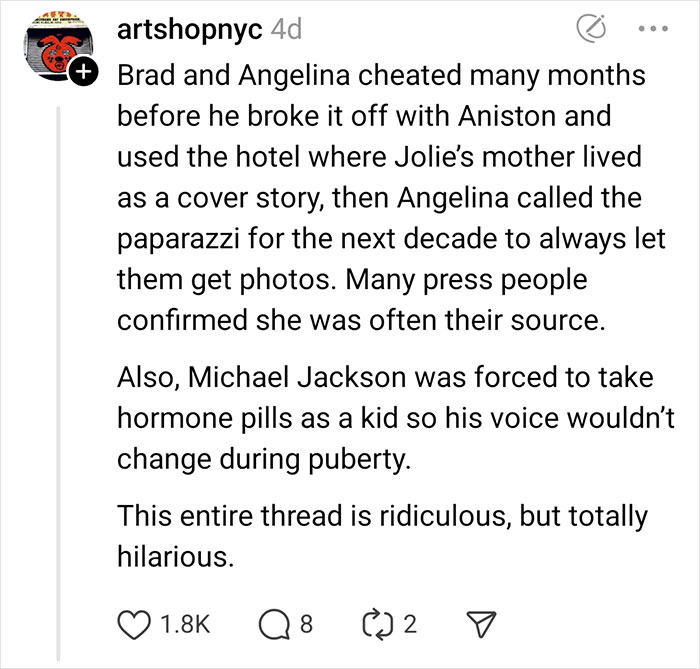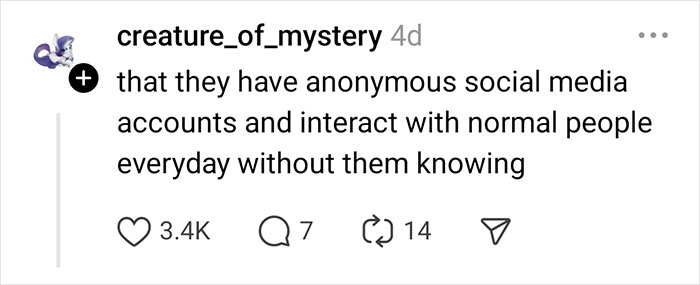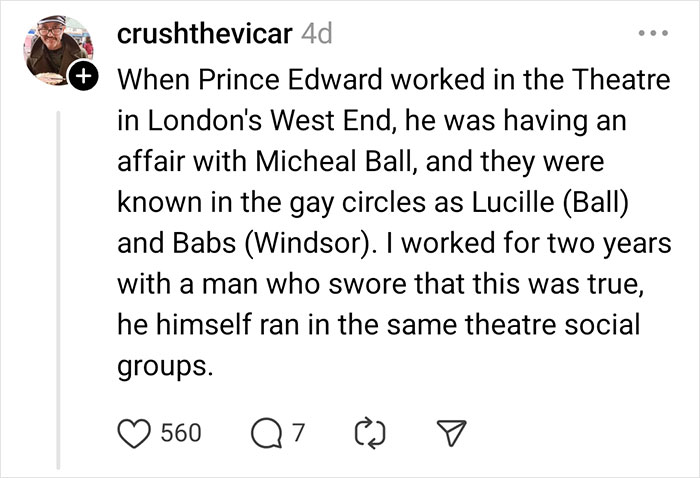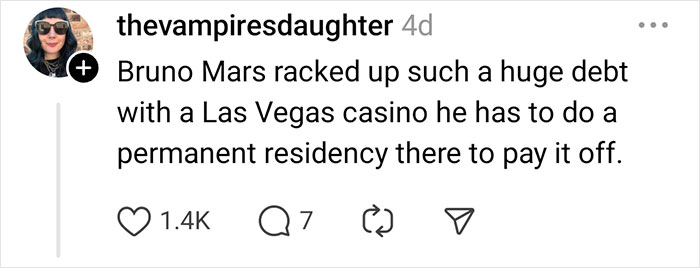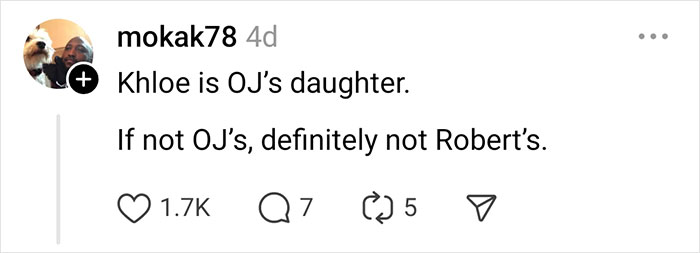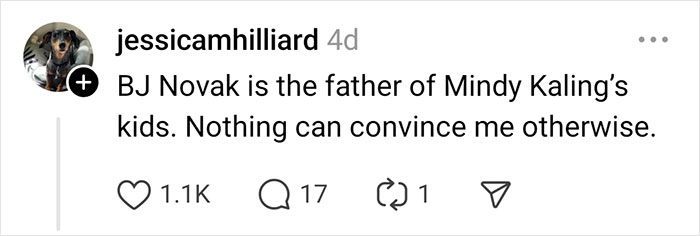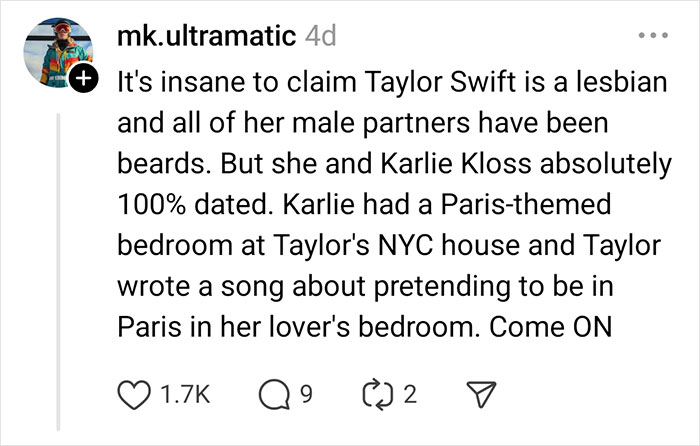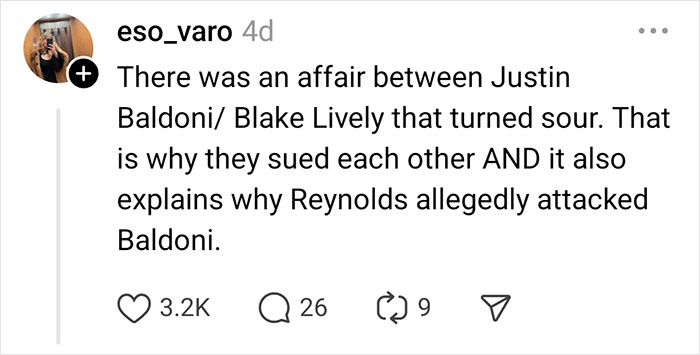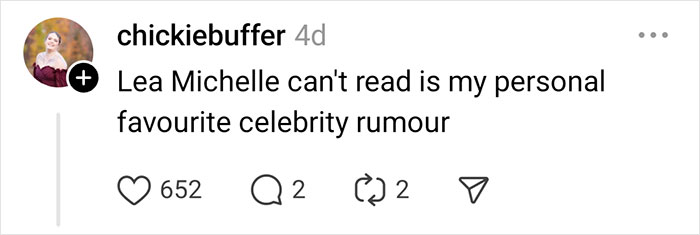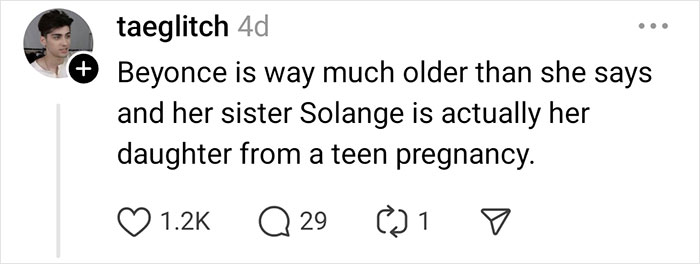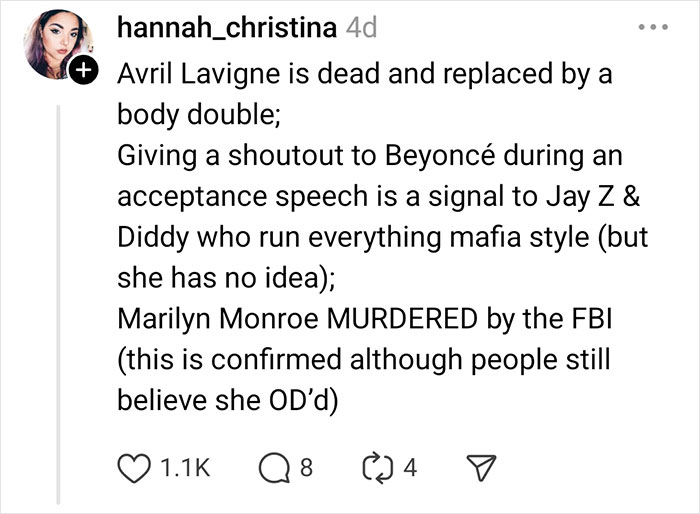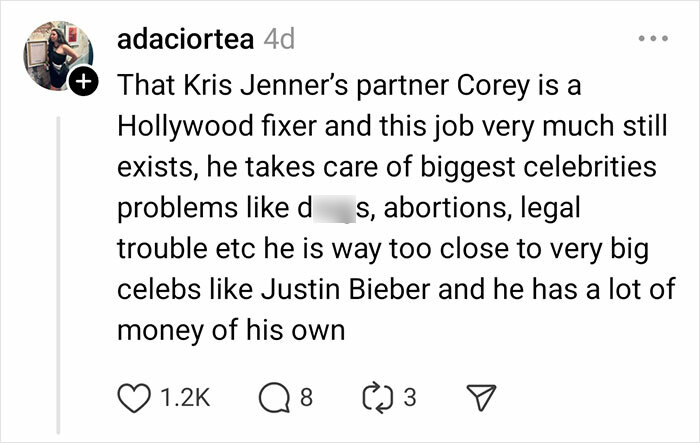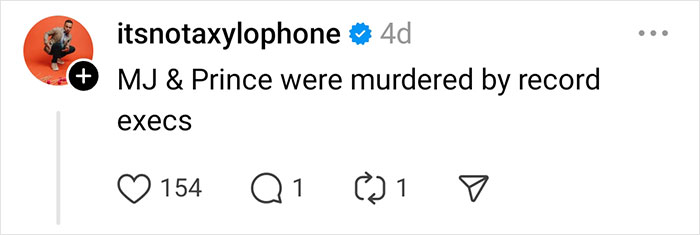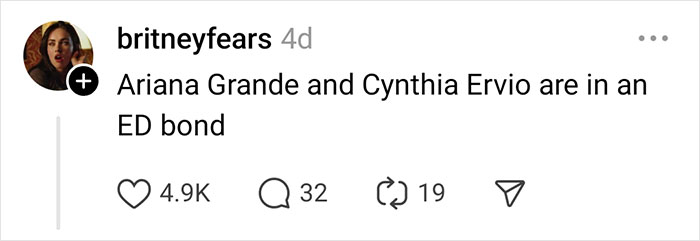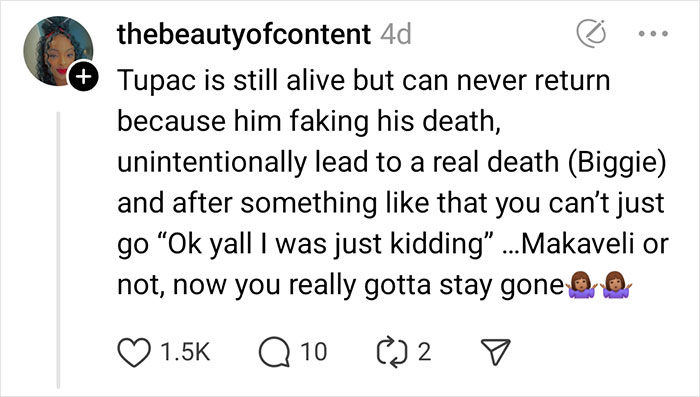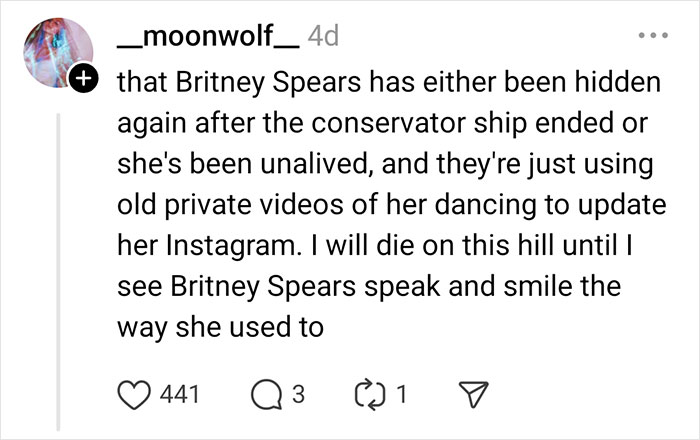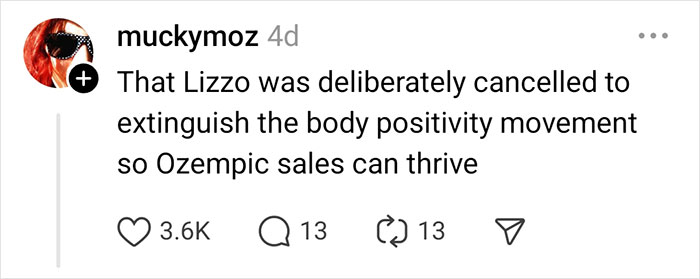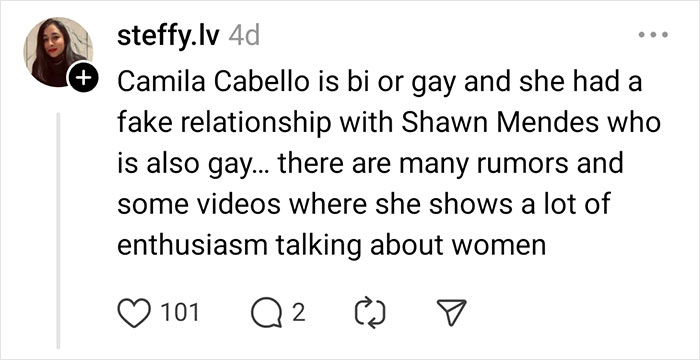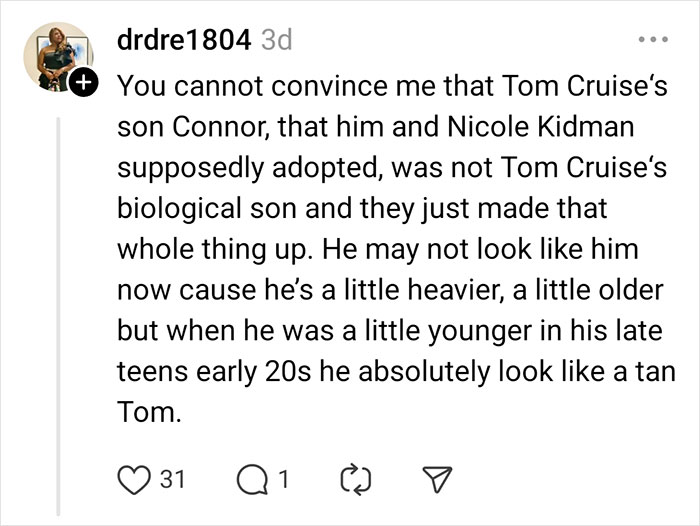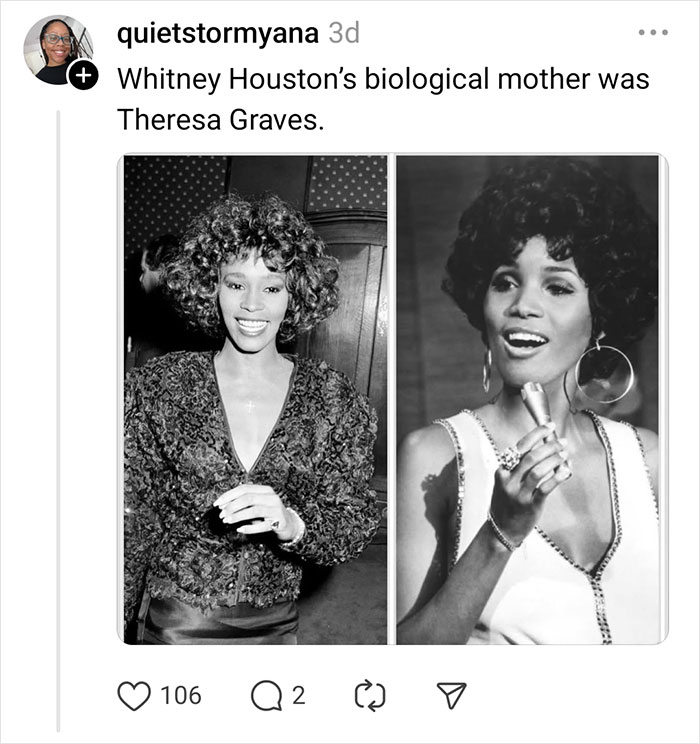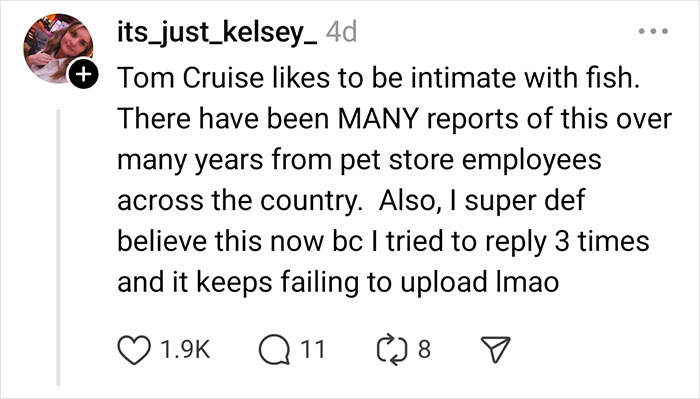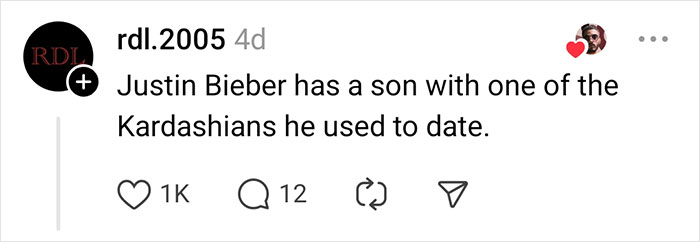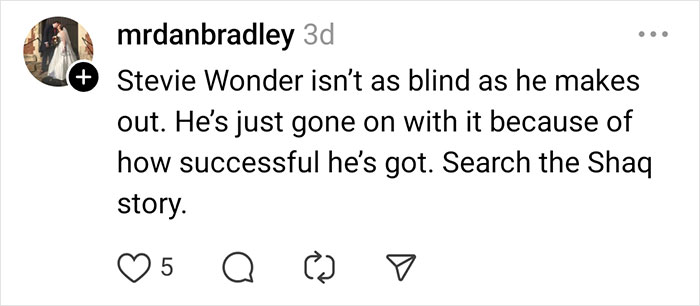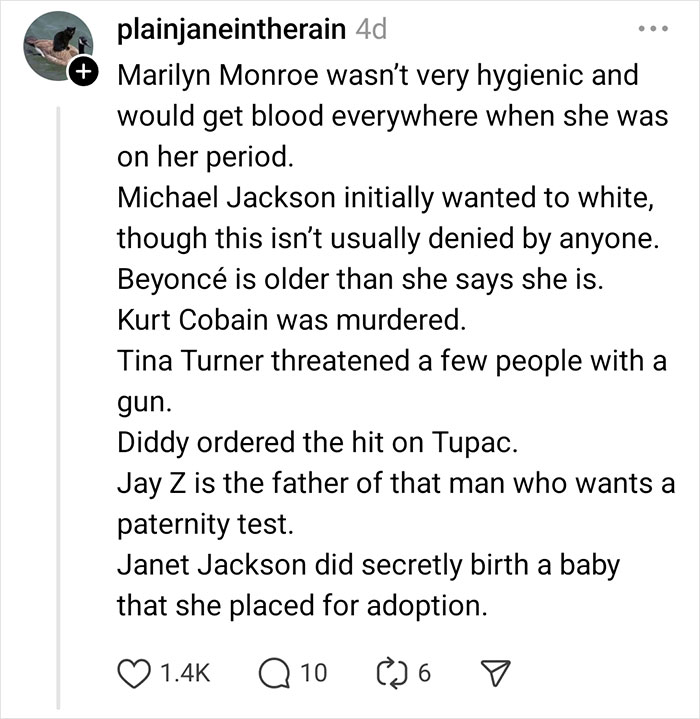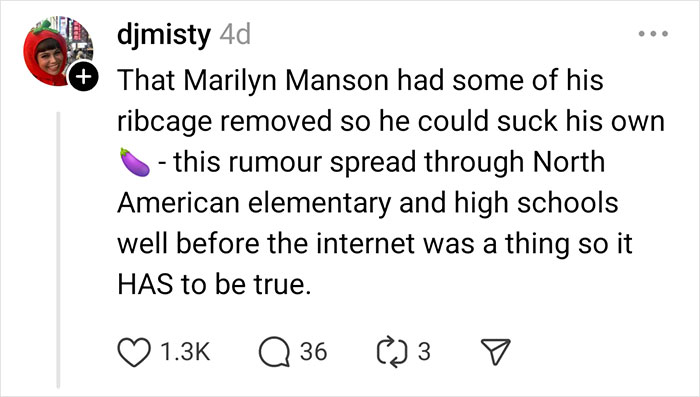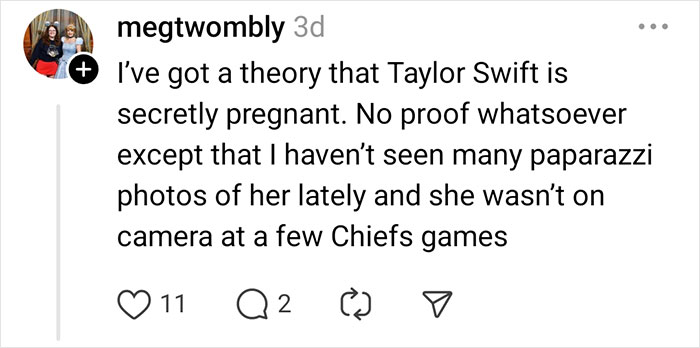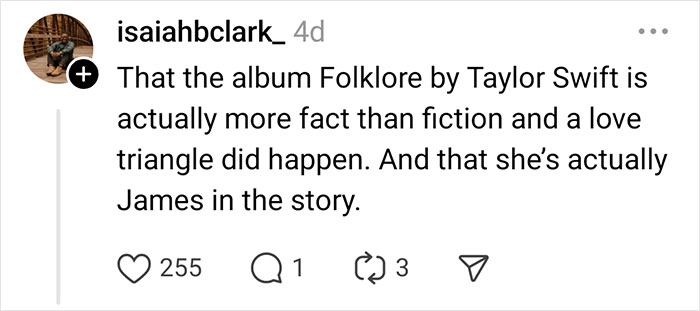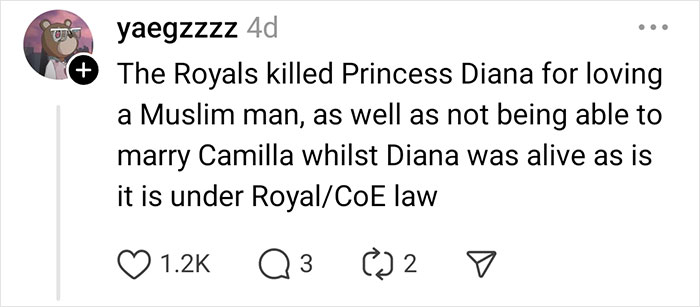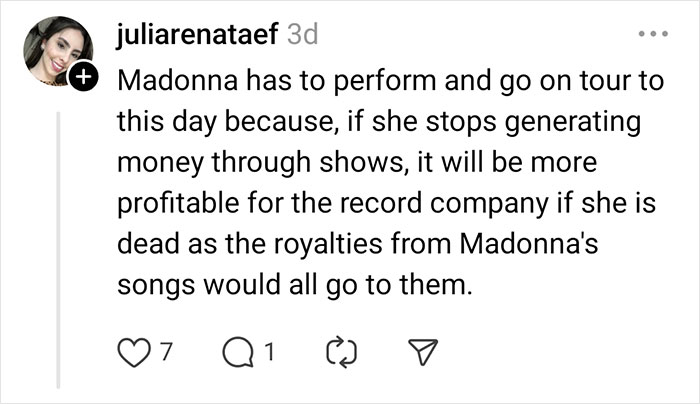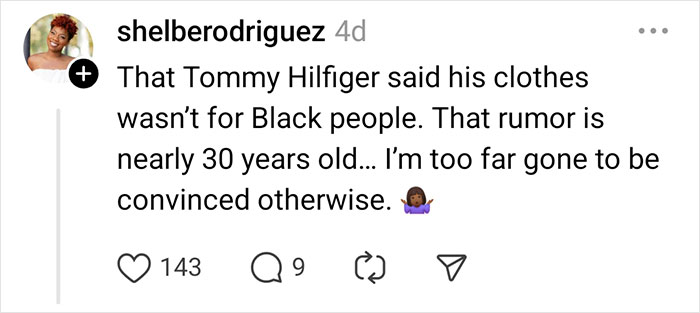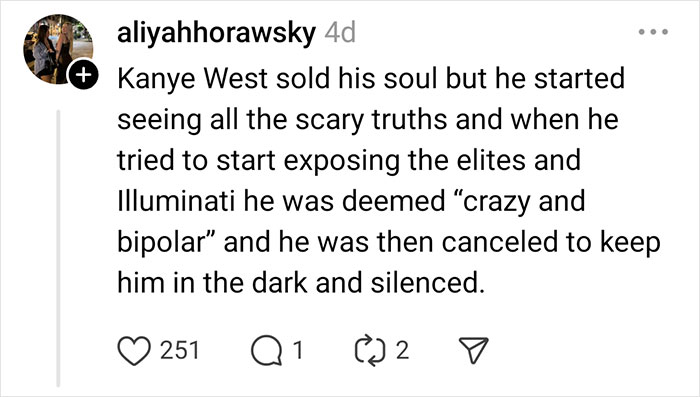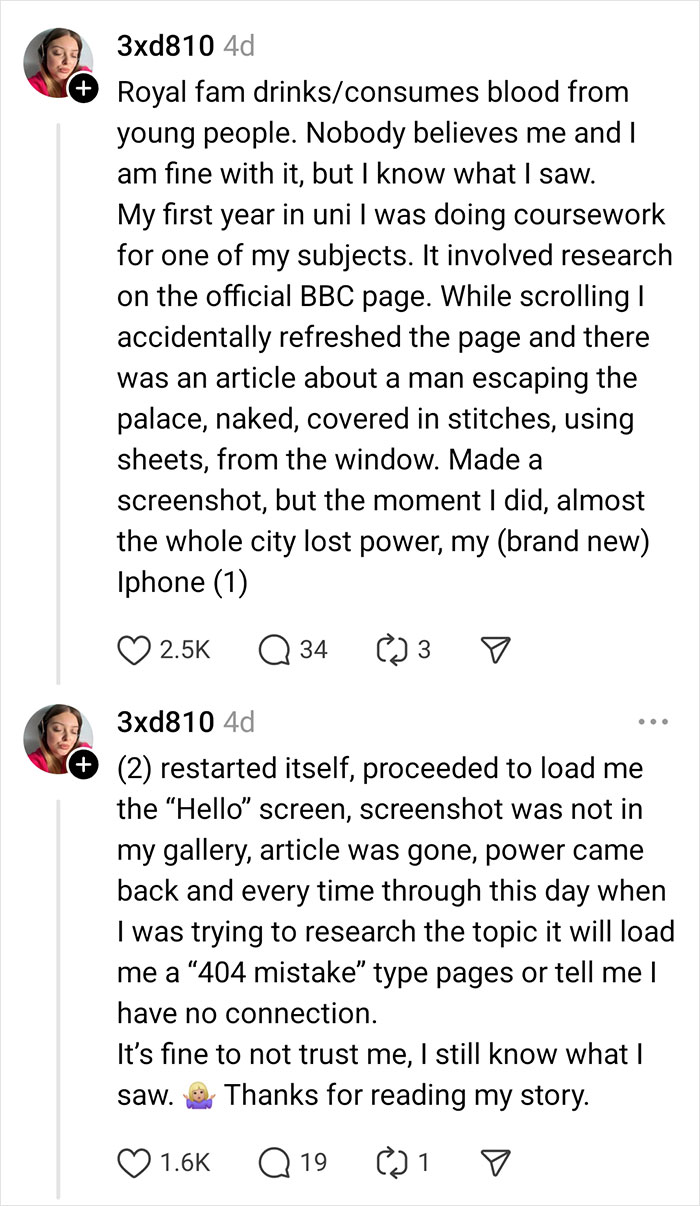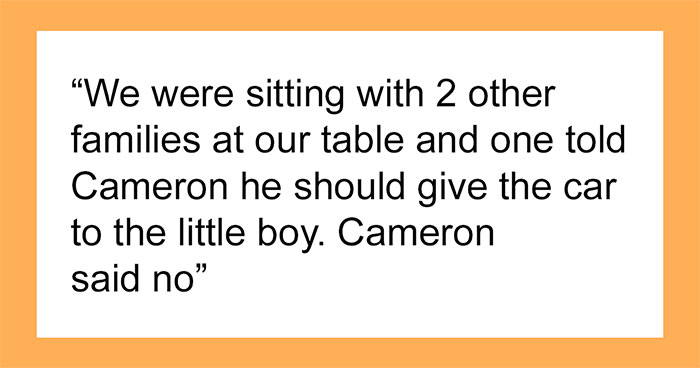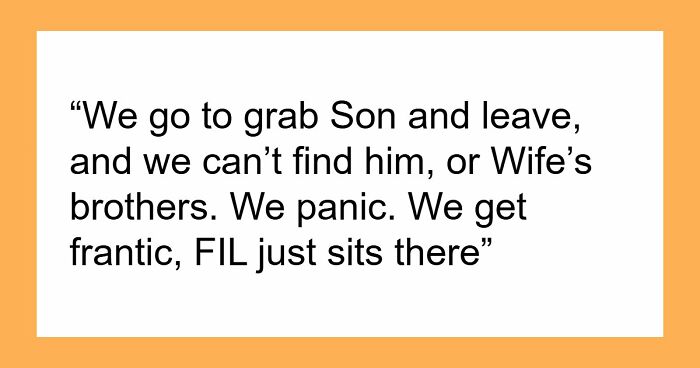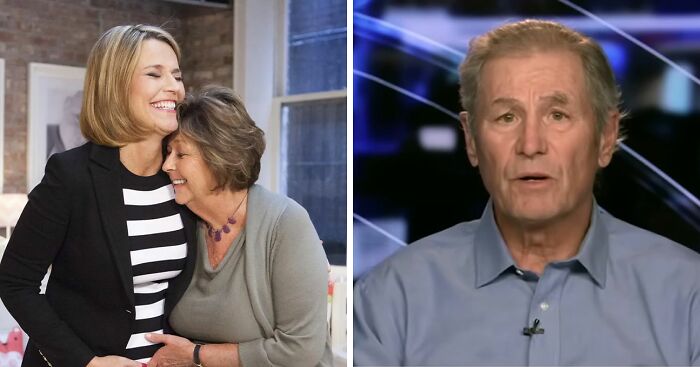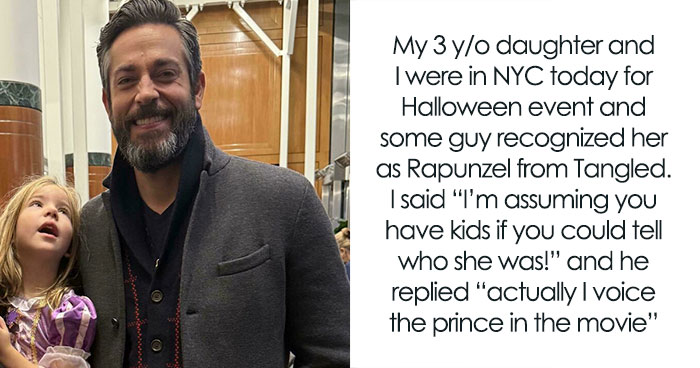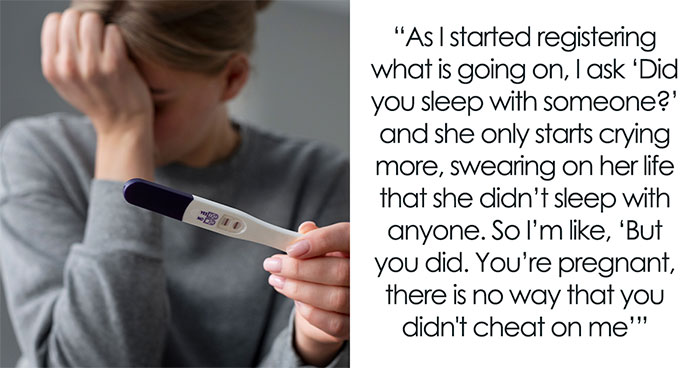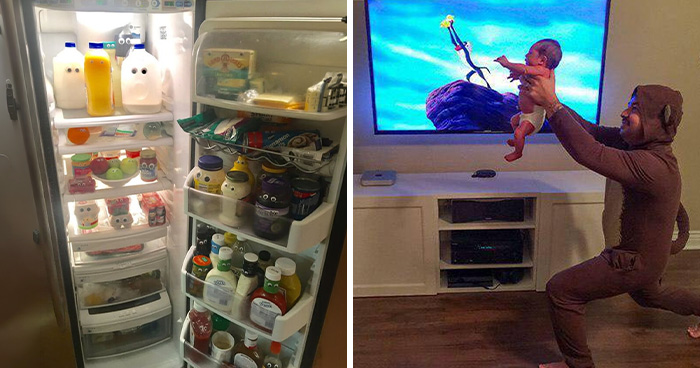
“Nothing Can Convince Me Otherwise”: 30 Celebrity Rumors These People 100% Believe
InterviewAnyone—absolutely anyone—who becomes famous gets far more judgment and scrutiny than if they never stepped into the spotlight in the first place. Some criticism is obviously valid and taking responsibility for your actions should be the norm. However, inevitably, stars and public figures have many rumors spring up about them and what they do, some of which are completely fake while others later turn out to be (partly) true.
Entrepreneur, content creator, and social influencer Country (@countryazhell) recently went viral on Threads, Instagram’s app where you can share public conversations, after asking folks to share the celebrity rumors they “100% believe but can’t prove.” Scroll down to see their opinions and to get a general feel for how both fans and haters view some stars and public figures.
We reached out to the author of the viral online thread, Country, and he was kind enough to answer our questions about what inspired him to start the discussion, why celeb rumors are so popular, as well as where the line lies when it comes to speculating about public figures. You'll find Bored Panda's full interview with Country, including his thoughts about the fluidity of reality in modern times, as you read on.
Just keep in mind that these are unsubstantiated claims and people speculating just for fun.

Image credits: countryazhell
This post may include affiliate links.
Bored Panda was very curious to hear about the initial inspiration behind the viral thread. According to Country, he was inspired by trending topics, "Especially in the music industry, politics, and pop culture. It feels like every day, there’s a new scandal or rumor being debated, whether it’s about someone like Diddy or what’s happening in Washington. Everyone has an opinion, and I enjoy creating content that encourages people to share their thoughts."
Country opened up to us about how his background reflects this passion. "I’ve worked on impactful campaigns like the Food and Drug Administration’s Fresh Empire initiative, which used hip-hop culture to connect with multicultural Gen Z audiences. I’ve also had the honor of working with high-profile clients like the Super Bowl and Oprah Winfrey, all where my focus was creating culturally resonant content," he shared with us via email.
"I love crafting content that gets people talking, whether it’s about something they’ve seen in the headlines or a wild 'what if' scenario. Seeing how creative people get with their responses and how widely opinions can vary is always surprising. As for the rumors themselves, some of them made me think twice, others are so crazy they’re funny. It’s entertaining to see where people’s imaginations take them."
Meanwhile, we wanted to get Country's opinion on why celebrity rumors are so enjoyable—plus where the line is drawn when it comes to (not) spreading certain rumors. He shed some light on these issues for us.
"I think people these days are less focused on whether something is true and more interested in the tea itself. It’s less about facts and more about having a story to share. From fake news to advances in AI, and even the curated lives we see on social media, reality has become a fluid concept, truth almost doesn’t matter anymore," he told Bored Panda.
"Keanu Reeves once shared an anecdote about explaining The Matrix to a group of teenagers who have never seen it. When he talked about a character questioning reality, one of the kids asked, 'Why should I care?' That perfectly reflects the state of the world now. People care about intrigue and relatability more than facts."
Ding ding ding! Not just celebrities either. I predict all these attempts to cover up and misdirect people is the very thing that will bring their empires crumbling. We see you motherfookers.
That being said, Country still believes that there is a line when it comes to rumors. "Speculation should be fun, not harmful. Spreading something that could be damaging crosses that line. There’s a difference between engaging in comedic curiosity and perpetuating something malicious," he said.
"My goal with Threads is to create spaces where people feel encouraged to share their thoughts and connect over humor, curiosity, and relatability. It’s been amazing to watch how conversations can grow, and I look forward to continuing to engage with my followers in meaningful and entertaining ways. People can find me across social media at @countryazhell." If you like this type of content, be sure to check out Country's social media profiles on Threads and Instagram!
One study from 2016 that looked at how people orient to and spread rumors on social media found that rumors that are ultimately proven true tend to be resolved faster than those that turn out to be false.
“Whilst one can readily see users denying rumors once they have been debunked, users appear to be less capable of distinguishing true from false rumors when their veracity remains in question. In fact, we show that the prevalent tendency for users is to support every unverified rumor,” the authors of the study explain, arguing for a need to develop “robust” machine learning techniques that can provide real-time assistance when assessing the veracity of claims.
Gossiping, spreading and listening to rumors, and judging others are fundamentally human traits. In short, there probably won’t ever be a time when people stop gossiping because it’s as enjoyable as it is informative… at least potentially. There are pros and cons to gossip.
On the upside, gossiping and being judgmental are ways to stay informed about important events in your community, evaluate who is (not) trustworthy, and remind yourself of what values and norms society prioritizes, as well as what behaviors are considered taboo. It’s how you maintain cohesion in communities.
But there are plenty of downsides to gossiping, too.
They have both admitted to this possibly being true but Matthew is hesitant because of the man who he believes to be his father and doesn't want to ruin that relationship.
One major downside is that it’s often hard to immediately tell whether a rumor is real or not. Especially in the digital age, where information spreads so quickly that debunking fake news is a constant struggle.
On top of that, you have to consider that many rumors are spread not out of goodwill or the desire to inform the public.
There’s often an element of envy, anger, and a desire to ‘punish’ someone in the spotlight. For instance, some folks might feel envious of the biggest stars in Hollywood earning billions of dollars with their successful projects.
Or someone might have a clear bias or a specific agenda, so they lash out at celebrities to advance their goals, whatever they might be.
I heard that their affair started when filming Mr & Mrs Smith, and they just denied it. Spoiler: did not end well.
So, while inevitable, gossip shouldn’t be taken lightly. You shouldn’t rush to believe rumors—any rumors—just because you see them on your social media feed.
A good rule of thumb is to be suspicious of anything that sounds too good or too bad to be true. Always double-check and cross-reference information with multiple reliable sources if you stumble across an outlandish claim.
This is actually something that a lot of very obese girls have done. Especially child abuse victims.
YES!! I have driven down this rabbit hole soooo deep and nothing adds up. I can discuss is for hours
Of course, nobody has the time or energy to verify every single piece of iffy or improbable-sounding information. So it’s best to have a list of sources in mind that you can refer to when needed (e.g., Associated Press, Reuters, AFP, the BBC, etc.).
While all sources inevitably make mistakes, trustworthy sources always make corrections, explain where they got their information from, and avoid making baseless rumors.
Yo Deadpool, WTF? Who in their right mind trades ScarJo for Blake friggin Lively?!
As we’ve covered previously, people judge others both consciously and automatically. For some, finding flaws in others is a way to feel superior and better about their choices in life. For others, it’s how they recognize where they fit into society, what aspirations they have, and who they might (not) want to become as people.
I heard that rumor before. That she was wanting to get out of the music scene and was killed so she couldn't stop the money making possibilities.
If used sparingly and consciously, judging other people can help you make the right choices in life and align your goals, values, and actions.
However, if you’re doing this just to pull others down to feel better about your personal flaws and mistakes, that’s a line you shouldn’t overstep.
Why is a celeb being gay or bi such a huge thing anymore? So friggin' what!
I truly don't believe this at all. I think JB was probably a little aggressive as some guys tend to be when they start feeling comfortable with women on set, and I definitely believe the story of him going into her trailer inappropriately because the details of it sound very real and detailed. It just feels like it's not a lie and it has a ring of truth to it. it probably made her uncomfortable. I don't think it was as bad as she's trying to make it sound, though, because there's plenty of video of her laughing and talking with him. As a woman I understand that sometimes we do that to avoid confrontation. But if it was so bad that RR started hanging out on set with her because she felt unsafe and uncomfortable, I feel like there needed to be a much clearer line with him that was drawn to say 'this is unacceptable and we're going to fulfill our contracts to finish this film but I don't need you to be in my trailer, I don't need you being around me at all unless it's business related.'
What do you do to double-check any bizarre rumors about public figures and stars, dear Pandas? Are there any unverified claims about celebs that you personally believe? If so, why? What is the weirdest rumor you've heard recently? If you have a spare moment, you can share your thoughts in the comments.
Why? I'm not so sure about MJ's later life, but Prince still made vast sums of money for them.
Or maybe she has a mental illness that is going untreated because, while I think her father and family are absolutely abusing her for money, it doesn't mean she shouldn't have someone helping her to make better decisions for her life because she's incapable of doing so. Her behavior is not healthy. And whether it's due to d**g use, lack of proper medication/mixing meds she shouldn't, and complete lack of ever having to be a real adult because from the time she was 15 she's been a product--probably a mix of all of these--what is for sure is that she's allowing herself to be used by people who are somehow convincing her that they want what's best for her. Some of the guys she's dated are seriously questionable. Criminals, d**g dealers, controlling abusers...I worry that being completely free from help is not really the best thing for her, either.
I kind of feel bad for her. (Not really though - I'm not that empathetic) She's probably spent her whole life wondering about it and feeling like she's an outcast.
Whatever gets this bullsh*t extinguished is fine by me. You can find obesity attractive and beautiful as much as you like, that's totally fine. Whatever floats your boat. But nobody can deny that it's very unhealthy and leads to a lot of health problems. Something like that should not be promoted.
We heard him being violent so on the audio recordings where he was throwing bottles at her in their kitchen. So I believe some of what she says. HOWEVER, I tend not to care because she was caught on tape saying that her smacking him back was okay and that he was a man, and therefore no one was going to believe him that she hit him, too. I can't stand the double standard from women who claim abuse but they see no problem in the things they say about men or how they hit men. Abuse is abuse and that sh!t just makes it harder for real victims to be believed. Granted, men can often do more damage, but in this case I just think they were both in a volatile relationship with too many d***s, too much alcohol and too much money-- and I don't feel for her at all. On the other hand...I will say that JD's career was not affected. Abuse of women doesn't generally garner any consequence. But AH has literally had to leave the country to escape and had death threats against her.
She did indeed receive many units of blood until the surgeons discovered that her heart and adjoining arteries and aorta were beyond repair due to gunshot wounds.
Um, getting blood everywhere on your period isn't because you're unhygienic. It happens to a lot of women because they have very heavy periods and sometimes there's no pad or tampon that can contain it. It's a nightmare and embarrassing. You continue to bleed even in the shower, when you sleep, when you're at school, etc. And you can't always go to the bathroom. I remember in school my teacher wouldn't allow us to go to the bathroom more than once per class, so one time I got up and there was blood on the seat and it freaked him out. I had to walk home with blood showing on my pants because of that and I had to clean the chair as I could feel myself dripping down my pants. If you're at work, you can't get up and change a tampon every 20 minutes. It's really hard to deal with but the alternatives are birth control, which can sometimes help lighten it but there are a host of side effects. Or hysterectomy. Marylin had heavy periods due to endometriosis.
Old Wives Tales and hoaxes well pre-date the internet. If that is the base line for truth, then McDonald's burgers are all made of worm meat and cow eyeballs, and they can claim that they are 100% beef because they get their worms and eyeballs from the company "100% Beef". Those date back to at least the 70s.
This is blatantly untrue. Madonna owns her catalogue, which will be passed to her heirs when deceased. This is adsurd as she ranks #5 best-selling artist in history, and has had control of her career from the beginning. Current female artists would not hold their esteem if not for this trailblazing artist.
Some were a giggle, some were flat-earther territory. Bless your wee brains.
idk that anything can be in the realm of flat earth territory except flat earthers themselves
Load More Replies...This would have been hysterical if it wasn't such a depressing indictment of people with nothing to do.
Some were a giggle, some were flat-earther territory. Bless your wee brains.
idk that anything can be in the realm of flat earth territory except flat earthers themselves
Load More Replies...This would have been hysterical if it wasn't such a depressing indictment of people with nothing to do.

 Dark Mode
Dark Mode 

 No fees, cancel anytime
No fees, cancel anytime 




